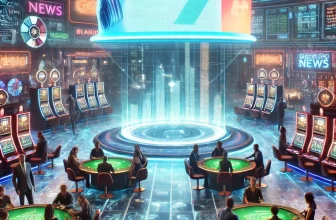
Azov-City Casino Owners Demand Compensation
As is known, the most successful gambling zone in Russia, Azov-City, was closed due to the emergence of a new IKRZ in Krasnodar Krai. Recently, a court case was held where the claim of the Shambala company against the regional administration, which required compensation for damages, was rejected. The claim amounted to 1.5 billion rubles. The claim was rejected with the wording: "The damages are justified by the entrepreneurial risk." The plaintiffs demanded that all property, including buildings constructed in accordance with the laws of the Russian Federation on the organization and development of gambling zones in the country, be accepted onto the balance sheet of the district.
After the court hearing, the company's lawyers stated that they intend to appeal to the Constitutional Court, demanding that the decision be appealed. They also stated that they would insist on accepting the company's property onto the region's balance sheet with compensation paid to all employees who lost their jobs and legal income. Also, in their statement, the lawyers recalled that the company is forced to bear additional losses for the maintenance of buildings that are not currently in use.
Today, the Shambala company has property rights to a gambling and hotel complex, which includes 26 real estate properties. These are two casinos, several restaurants, a hotel, etc. In addition, a significant amount of gambling equipment is also idle, and this is more than 700 slot machines and 40 tables.
The initial amount of the claim against the regional administration was 3.3 billion rubles. This amount included not only direct losses, but also so-called lost profits. However, the amount was later reduced to 1.5 billion rubles. In addition, the investor demanded the return of property taxes, the amount of which is 16 million rubles.
The Russian legislation provides for compensation for the closure of an IKRZ if it has operated for less than 10 years. At the time of the closure of Azov-City, the zone had operated for a longer period. According to one of the employees of the Nafko law firm, the prospects for reviewing the court decision are rather vague. However, the investor is not ready to give up, which is why he wants to appeal the court decision.




